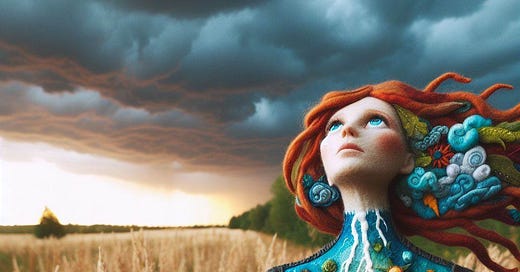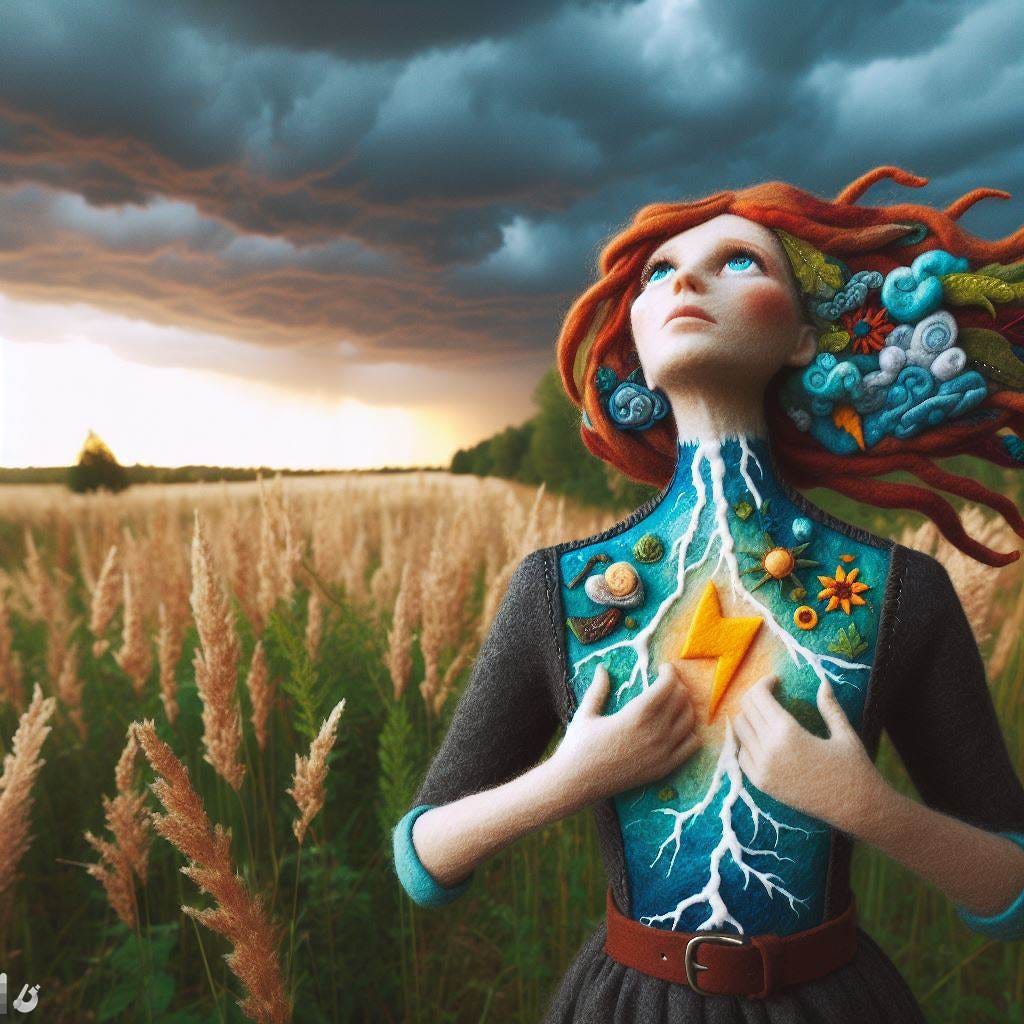I. Layers of Loss
Strangely enough, the world is not infinitely surprising. Or at least, not continuously so. It will indeed, for long stretches of time, cease to surprise me. This is the mythological Winter - a time to find a new - and hopefully better - way to experience the same old stuff. Old frustrations bubble up.
Learning how to savor is the only opportunity I am offered in these times, and even though I am too smart and too cynical to believe in a dad God, I do think there's a reason why there are whole spans of my life where I am challenged to see how incredibly unlikely any part of this experience is. Almost impossible things happening not just constantly, but ceaselessly.
It is hard to understand because it is ceaseless, it is not marked by change. But to the extent that I do understand it, it is because I have experienced loss. I am asked - or offered the possibility - to think about how unlikely anything is, including the millions of things every day that I unwittingly fold into my everyday.
How to hold loss is not easy to answer, and so I can easily dismiss easy answers. “You see, our ancestors were __________________ and we have lost that,” is, most of the time, the beginning of a sales pitch. My ancestors do not actually want me to return to hunting-gathering, they are not overly impressed by hanging fresh grown herbs from a laundry line to dry in the sun, and they certainly couldn’t care less if I plant my bare feet in the dirt (ew?). It takes the complexity of human history and cultures and turns it all into marketing psychology. Never mind cultural appropriation, how about one dimensional thinking? This is a common trick: touch on a need that resonates universally, and then offer a phony solution. Buy my book! take my class! Make a bracelet to track the cycles of the moon! Even mindfulness and meditation can be sold, and so they are.
But loss is not constructed. Sometimes, for a second, I understand that’s beautiful - every single piece of experience I can wrestle from “nurture” and return to nature is a battle won. There are many things that, if we all stopped believing in them tomorrow, would simply cease to be. Money, states, even words - but not loss. We do not imagine it together. What I can change is not what loss is, but rather how I hold the grief that comes from it.
These Winters are grief, it seems obvious that I should grieve loss of all kinds although I've never considered darker periods as such. I have grieved the loss of possibility, the loss of life, the loss of trust, the loss of relationships, the loss of home, even the loss of time itself. I have gained and lost an entire language in this lifetime. I suppose any person, experiencing time linearly, experiences grief in a much broader sense than I’d previously considered it.
What I want is a question that, in its form, pivots away from the temptation to buy into something and moves towards the work of experiencing something.
II. The Right Question
Whether it’s because it is not articulated or because it has so much to do with absence, this small order - large impact grief, or small impact large order or small and big at the same time grief, whatever, everyday bigsmall grief, is lonely. And when I say lonely, I mean the feeling I get from reaching backwards in time with the same antennae that I use to reach forward in time, and getting no response.
I think to grieve is to love - love the home I lost, the friend I lost, the self I lost, and so on. It is hard to hold the love for what I have lost without shame. Can I have an honest and nourishing relationship with loss?
This kind of interrogation is sometimes derisively described as prescriptive, but what is the use of writing about grief and loss if I can’t talk about pain? I can stop - at least for the moment - trying to answer unanswerable questions and instead, try to answer the question that I actually have. I don’t need rational answers, I need relevant ones.
As human nature is in me but is also a whole that includes me in it — grief is in me and also is larger than me. It may well be larger than even human nature; pain, after all, is universal. It is too much to say that pain is a message — we’re not selling books here — but it’s too little to say that it is just an object passing through me.
What do the things that are bigger than me mean for me?
III. Bigger on the Inside
I find these “bigger” things inside myself first, typically, but like stumbling into a new universe, they can seem (and perhaps are) vast. I identify these things that are bigger than me at least in part by their strange relationship with time. These are things I find inside of my corporeal linear being that are themselves not bound to corporeality or linear time. The words I use to describe them are usually “great,” “big,” “vast,” and in my essentialized question, I said “bigger than me.” I experience them as feelings. Feelings that are bigger than me. I think feelings are an experience of time, as light is an experience of space, and simply existing is — can be understood as — an exercise in loss, because even if I do absolutely nothing at all, I still lose time.
Time is also bigger than me, it is also within and without me; it is responsible for the very possibility of anything occurring, and it is also responsible for endings. These are the things we already knew about time. To them, I add: feelings are how I experience time, they give time meaning. From a God’s eye point of view, if time is a circle, and everything is happening at all times, then like colors into white, feelings are absorbed into the stasis of all things all at once. I think specific, distinguishable feelings are a product of linear time, the only kind of time I know.
I can think of only one other structure that has a clear beginning, middle and end, besides a life, and that is a story. Maybe linear time — a lifetime — is a story being told. I don’t know why. It could be just for the experience of ceaseless miracles, which is a nice thought.
IV. Storytime
It is a little weird, and frankly a little distressing, that a lot of reality is a story I tell myself. Right now, I am looking for a story to tell myself about what it means to have something when I will one day have nothing and what it means to have something when I have had other things that I have lost. A story that can do justice to the very small and very large nature of grief at the same time, that speaks to death and an average Tuesday morning, too, is no small thing.
The job of the story is to uncover grief in its most abstract and concrete forms; the broadest and the most specific; the most common and the most individual; and then to open the door to the pain like welcoming an old friend. I think that is what it means to savor. If I look up the word, it means to give special attention to the present, “to fully enjoy the gift of each moment,” but I think that hidden in this woo is the fact that each moment has grief in it, that alongside the concern with being, there is a concern with loss.
My new year’s resolution is not to write a book called Grief and Time, but simply to figure out how to count my losses the same way I count my blessings. It is enough.



